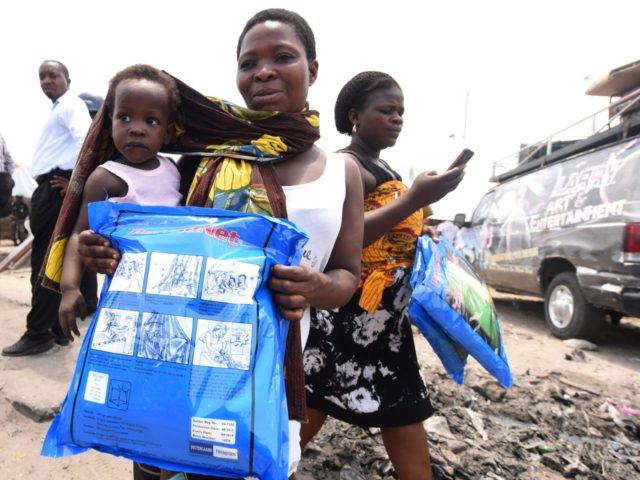British taxpayers’ foreign aid money is being wasted on “superficial” projects by some of the world’s largest aid agencies, International Development Secretary Priti Patel has warned.
Speaking to The Telegraph, Ms. Patel revealed that her department will be conducting a thorough review of the programmes run by non-governmental organisations using money donated by the British people to ensure that the funds are being put to good use.
Approximately 40 per cent of Britain’s aid budget – £4.5 billion last year – is handed to international institutions like Unesco and the World Health Organization. But Ms. Patel has expressed concern with how some agencies chose to use the funds.
Her department is set to release a Multilateral Aid Review next month, detailing the way large agencies use aid money – and sometimes fail to get good value for the cash.
“When the Multilateral Aid Review comes out, it will cover the whole spectrum of organisations,” Patel said.
“We will call out those institutions that are not performing for our taxpayers and are failing the people that they should be there supporting.
“These organisations are there for their beneficiaries – not for their own self-serving interests.
“When we see waste and inefficiency and when we see UK taxpayers’ money being used in completely the wrong way, we will call them out and we will challenge them.”
When the last review was carried out in 2011, 18 of the 42 agencies reviewed were found only to offer “adequate” or “poor” value for money. Patel says she will challenge those found to be underperforming.
“My focus is following the money, following the people so we can then follow the results as well,” she said.
“So if we see superficial stuff taking place that is not results focused and is not the right use of our money, we will shut that funding stream down.”
Vowing to put the “right kinds of performance agreements in place” to get the best deal for the British taxpayer, she said: “When it comes to multilateral organisations [we will] focus on performance agreements. If they are not performing then we will look at the contributions we give to them.”
Patel has previously spoken of her desire to overhaul aid spending to better reflect the core conservative principles of value for money, wealth creation, and investment. Adding detail to that vision, Patel said she wanted to see international agencies do more to promote economic development, promising: “Economic development will be at the heart of what my department does.
“We will challenge the multilaterals to make sure they are focused on jobs, livelihood and prosperity.”
To illustrate how this might be done, Patel referenced the “Hunger Safety Net programme”, a project which gives refugees in northern Kenya cash payments of $40 (£32.74) every two months. Families can access the cash with a fingerprint operated debit card.
“We have to innovate,” Patel said. “For decades, the bags of flour have come to Africa and what has changed? Poverty is still endemic.”
The cards, pioneered by the British government, give families control over the finances required to buy the food their families need, and can help to encourage refugees to stay within their home region rather than making the journey to Europe.
“We have a very strong role to play, keeping people in country, keeping people in the region stopping them from migrating so that they have a future for themselves and their family,” Patel said.
“Hopefully when there is peace and stability in many of those countries that people have fled in the future they will be able to go back and help rebuild their own countries and economies.”
And, in a major show of “soft power” following Brexit, Patel said she hopes to see the British flag stamped on aid packages, in a similar way to the aid packaged by the United States, to send a strong message to the rest of the world.
“We should be really proud when we see UK aid logo on aid that is saving lives in conflict zones and things of that nature. I would love to see more and we should see more.”

COMMENTS
Please let us know if you're having issues with commenting.